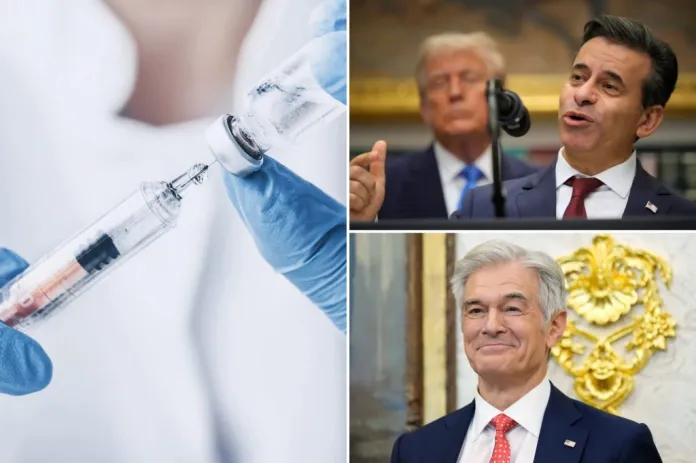The administration’s reforms specifically target biologic drugs—pharmaceuticals made from living organisms—that are frequently used to treat cancers, autoimmune conditions, and rare diseases. Biosimilars are essentially generic versions of biologic drugs, also referred to as large-molecule drugs.
Health and Human Services Secretary Robert F. Kennedy Jr., alongside Dr. Marty Makary and Dr. Mehmet Oz, announced last week that the FDA would cut red tape that has made biosimilar drug development significantly slower than that of other pharmaceuticals. This delay has kept biosimilar prices high due to limited competition.
Makary and Oz highlighted in their Fox News op-ed that the hurdles for drug manufacturers seeking to produce biosimilars were “originally set up by Congress, but the FDA has historically gone a step further by taking an overly cautious approach.” Until recently, the FDA required biosimilar developers to conduct comparative clinical trial studies before granting approval—a step not required for generics in the small molecule drug class.
“When a doctor prescribes an expensive biologic, substitution with a biosimilar has not been routine, as it is for every other branded drug and their generic equivalent,” Makary and Oz explained. They added that this “perverse system has been fueled by pharmaceutical companies, pharmacy benefit managers, and reimbursement policies that incentivize doctors to use more expensive medications.”
Biologics currently account for 51% of drug spending in the United States. Yet, only 10% of the biologics set to lose patent protections in the next decade have biosimilars in development. Trump administration officials noted during the policy announcement that biosimilar drug spending in the U.S. more than doubled from $100 billion in 2013 to $260 billion in 2021.
Makary and Oz emphasized that eliminating the extra clinical trial steps will significantly reduce the development time for biosimilars. This increase in competition is expected to drive prices down, making treatments more affordable.
The administration stated that these reforms would “save billions for the Medicare program” and help address a key aspect of the “affordability crisis that has plagued all insurance programs.” Furthermore, the FDA is collaborating closely with the Centers for Medicare & Medicaid Services (CMS) to improve insurance approvals and reimbursement for biosimilars within Medicare and Medicaid.
In addition to biosimilar reform, the Trump administration has been advancing the “most favored nation” prescription drug policy. This policy involves negotiating with pharmaceutical companies to lower drug prices by aligning U.S. prices with the lowest prices available in other countries.
Last month, President Donald Trump announced two “most favored nation” deals from the White House—one with Pfizer and another with AstraZeneca. He also unveiled the development of the new TrumpRx platform, which will enable patients to connect directly with drug manufacturers and access the new, lower “most favored nation” prices.
In their op-ed, Dr. Oz and Dr. Makary also noted that Trump “demands that our nation’s regulatory process protect innovation by incentivizing the best solutions at an affordable price for our people.” They concluded by affirming their commitment to “enact meaningful reforms now that will bring a generation of fair prices to healthcare.”
https://www.washingtonexaminer.com/policy/healthcare/3872742/mehmet-oz-marty-makary-biosimilar-drug-reform-lower-prices/



